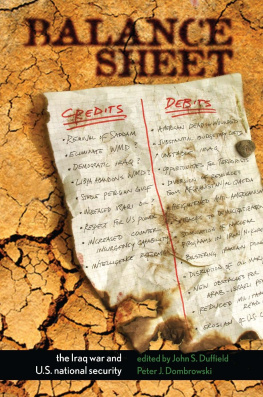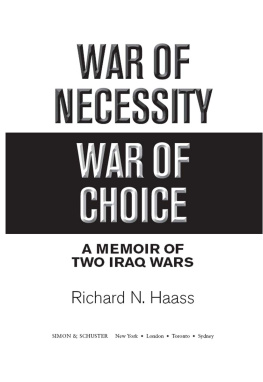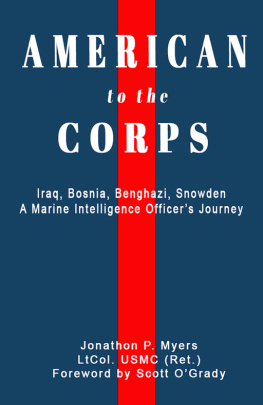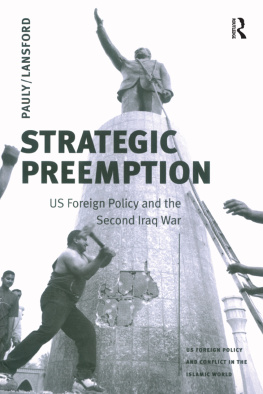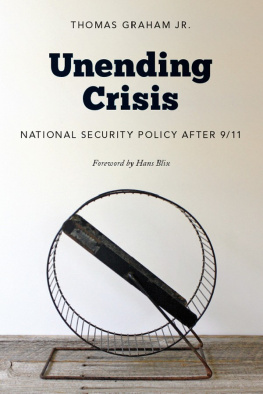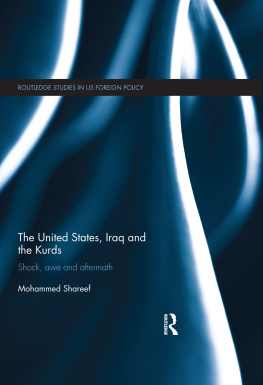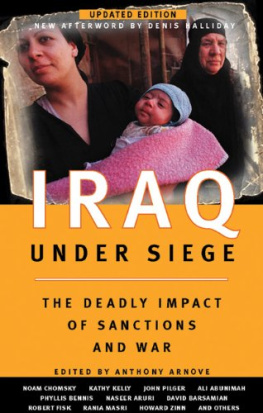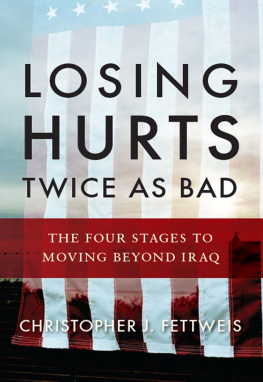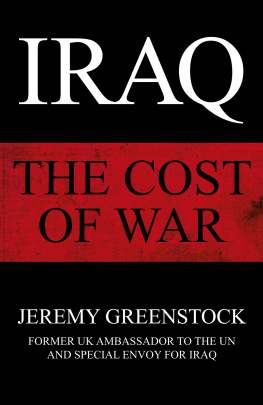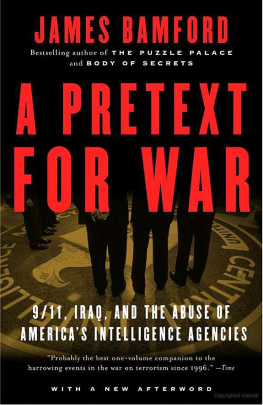Stanford University Press
Stanford, California
2009 by the Board of Trustees of the Leland Stanford Junior University. All rights reserved.
No part of this book may be reproduced or transmitted in any form or by any means, electronic or mechanical, including photocopying and recording, or in any information storage or retrieval system without the prior written permission of Stanford University Press.
Printed in the United States of America on acid-free, archival-quality paper.
Library of Congress Cataloging-in-Publication Data
Balance sheet : the Iraq War and U.S. national security / edited by John S. Duffield and Peter J. Dombrowski.
p. cm.
Includes bibliographical references and index.
9780804772044
1. Iraq War, 2003--Influence. 2. National security--United States. 3. United States--Foreign relations--21st century. I. Duffield, John S. II. Dombrowski, Peter J., 1963-
DS79.76.B3517 2009
956.704432--dc22
2009012529
Typeset by Bruce Lundquist in 10/14Minion
Special discounts for bulk quantities of Stanford Security Series are available to corporations, professional associations, and other organizations. For details and discount information, contact the special sales department of Stanford University Press.
Tel: (650) 736-1783, Fax: (650) 736-1784
CONTRIBUTORS
John S. Duffield is professor of political science at Georgia State University in Atlanta. He is the author of Over a Barrel: The Costs of U.S. Foreign Oil Dependence (Stanford University Press, 2008); World Power Forsaken: Political Culture, International Institutions, and German Security Policy After Unification (Stanford University Press, 1998); and Power Rules: The Evolution of NATOs Conventional Force Posture (Stanford University Press, 1995), as well as numerous other publications on international politics, institutions, and security. His current research focuses on the politics of energy security in the United States and other industrialized countries.
Peter J. Dombrowski is chairperson of the Strategic Research Department at the Naval War College in Newport, Rhode Island. He is the author of nearly forty articles, monographs, book chapters, and government reports. His most recent book, coauthored with Eugene Gholz, is Buying Military Transformation: Technological Innovation and the Defense Industry (Columbia University Press, 2006). Other publications include Guns and Butter: The Political Economy of the New International Security Environment (Lynne Rienner, 2005); Naval Power in the Twenty-first Century: A Naval War College Review Reader (Naval War College Press, 2005); Policy Responses to the Globalization of American Banking (University of Pittsburgh Press, 1996); and with Andrew Ross and Eugene Gholz, Military Transformation and the Defense Industry After Next (Naval War College Press, 2002).
Joseph Cirincione is the president of the Ploughshares Fund. He is the author of Bomb Scare: The History and Future of Nuclear Weapons (Columbia University Press, 2007). Previously, he served as senior vice president for national security and international policy at the Center for American Progress and as director for nonproliferation at the Carnegie Endowment for International Peace for eight years. He worked for nine years in the U.S. House of Representatives as a professional staff member of the Committee on Armed Services and the Committee on Government Operations and served as staff director of the bipartisan Military Reform Caucus. He teaches at the Georgetown University Graduate School of Foreign Service and is a member of the Council on Foreign Relations.
F. Gregory Gause III is professor of political science at the University of Vermont and served as director of the universitys Middle East Studies Program from 1998 to 2008. He was previously on the faculty of Columbia University (198795) and served as fellow for Arab and Islamic studies at the Council on Foreign Relations (199394). He is the author of Oil Monarchies (Council on Foreign Relations Press, 1994) and is currently completing a book on the international politics of the Persian Gulf region since 1971.
Michael E. OHanlon is Senior Fellow in Foreign Policy and The Sydney Stein, Jr. Chair at the Brookings Institution. He specializes in U.S. national security policy and is senior author of the Iraq Index. A former defense budget analyst who advised members of Congress on military spending, he specializes in Iraq, North Korea, homeland security, the use of military force, and other defense issues. He was also director of Opportunity 08.
Clay Ramsay , director of research at the Program on International Policy Attitudes (PIPA) and a fellow at the Center for International and Security Studies at Maryland, cofounded PIPA in 1992. He regularly appears in the U.S. and international media providing analysis of public opinion. With a background in history and psychology, he has focused on the study of ideology and mass psychology. He received his PhD in history from Stanford University, has taught at Oberlin College, and is the author of The Ideology of the Great Fear (Johns Hopkins University Press, 1991). He is a faculty member of the School of Public Policy at the University of Maryland.
Steven Simon is Hasib J. Sabbagh Senior Fellow for Middle Eastern Studies at the Council on Foreign Relations. He previously served as a senior analyst at the Rand Corporation (20036), deputy director and Carol Dean Senior Fellow in U.S. Security Studies at the International Institute for Strategic Studies (19992003), and director for global issues and senior director for transnational threats on the National Security Council (199499). He is the coauthor of The Age of Sacred Terror (Random House, 2002) and The Next Attack (Times Books, 2005). His current work examines the consequences of the American intervention in Iraq, Muslim/non-Muslim relations, and the role of religion in U.S. foreign policy.
Thomas G. Weiss is Presidential Professor of Political Science at The CUNY Graduate Center and Director of the Ralph Bunche Institute for International Studies, where he is codirector of the United Nations Intellectual History Project. He is president of the International Studies Association (200910) and chairperson of the Academic Council on the UN System (20069). He was editor of Global Governance , research director of the International Commission on Intervention and State Sovereignty, research professor at Brown Universitys Watson Institute for International Studies, executive director of the Academic Council on the UN System and of the International Peace Academy, a member of the UN secretariat, and a consultant to several public and private agencies. He has written or edited some thirty-five books and one hundred fifty articles and book chapters about multilateral approaches to international peace and security, humanitarian action, and sustainable development. His latest book is Whats Wrong with the United Nations and How to Fix It (Polity Press, 2009).

